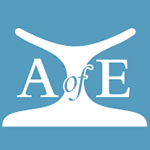The Object Habit conference, UCL, 7-8 April 2016
The term ‘object habit’ describes the phenomenon and associated practices of collecting material culture and specimens out of sociological, cultural and historical interest. It takes into account not just the physical nature of an object or specimen, but also the transformations in its relationships, meanings and receptions after it has left its original context and typically entered into a collection in another part of the world.
The aim of this conference is to explore the tensions surrounding historical and contemporary object habits and the constructions of knowledge that spring from cultures of field-collecting between the late eighteenth century and the present day. We seek to examine how provenanced objects and collections instantiate different sorts of knowledge as they are dispersed outwards from the fieldsite; how the material results of fieldwork are transformed or are emergent through curatorial practices; how they might reflect or reproduce national identities and imperial ideologies; the ways in which they may, or may not, remain connected with or relate back to the field; and what effect shifts in contemporary interests have upon the way individuals and communities relate to objects and their institutional histories.
Conference Details
This two-day, cross-disciplinary conference at University College London will take place on the 7th and 8th April 2016 at the Institute of Archaeology. The conference is linked to the AHRC-funded project ‘Artefacts of Excavation: the international distribution of artefacts from British excavations in Egypt, 1880–1980’, which is seeking to situate the treatment of archaeological finds from Egypt within broader, multi-disciplinary perspectives.
Attendance of the conference is free, but registration essential. Please contact project post-doctoral research associate Dr Emma Libonati (e.libonati@ucl.ac.uk).
Relations between the field and the museum
- How have institutional and individual practices affected/continue to affect the goals of fieldwork and how has/does such fieldwork influence the narratives that institutions choose to tell?
- How might explorers’ and fieldworkers’ personalities become the locus of international, trans-national, national, regional or local interest and impact upon museum and object histories?
- How do early documentation practices inform contemporary understandings of objects and fieldsites?
- How is the fieldsite constructed or represented according to the objects or the archival documentation from the explorations?
- In what ways did/does popular media coverage of fieldwork and its material products shape the general public’s perception of an object, location or discipline?
Collecting motivations: religion, science and materiality
- What role did institutional competition and object exchange play in field collecting strategies and legacies?
- What constraints and complexities are associated with the imperative to fund expeditions through the acquisition of objects and specimens?
- What influence does the sponsor (be they royal, institutional or private) have on both the fieldwork and the collection of objects and specimens?
- In what ways do religion and science inflect upon fieldwork and related curatorial practices?
- What regimes of value and materiality – object type, material, scale/size, form etc.– informed collecting choices both in the field and in the metropole?
Transitions of collections
- How has the importance of collected objects changed as disciplinary interests have developed and as academic and public zeitgeists have shifted?
- What are the legacies of imperialism or other political and cultural policies on the removal of objects from one country and their transference to another?
- What are the ethics and politics of buying and selling securely/well-provenanced artefacts and specimens from scientific fieldwork?
- What happens when contemporary audiences confront the prescribed institutional narrative and develop their own readings of objects and the related field?
For more information please contact project lead Dr Alice Stevenson (alice.stevenson@ucl.ac.uk)
